The News-Hub/ Articles
Back to Articles
Recommended Articles
What Biden's Presidency Means for America and Climate Change
The dust of the 2020 U.S. election is starting to settle, and although President Donald Trump contested the result with all of his might, it seems that the era of Trump is ending, and there is a huge potential for political change in the United States. Joe Biden is, albeit a centrist in general terms, by far the progressive choice. He served as Vice President under Barack Obama during the instatement of extensive climate policy that was designed to limit the pollution created in America through regulation. During his presidency campaign, he has made a commitment to reverse some of the damage done to federal climate policy over the last four years.
There is a lot of damage to undo.
Trump will most likely be remembered by history as a liar who failed to deliver on the promises he made in his 2016 bid; however, there is one goal in which his government has tragically succeeded, and that is to push climate change to the bottom of government priority. Trump encouraged climate-deniers to question scientific fact and he destroyed any regulation that might impinge on the profits of big businesses. Under the Trump administration, the economy reigned supreme over air and water pollution, global warming and the destruction of natural land and resources. What's worse is that he encountered little resistance from his colleagues while he shattered the environmental legacy of the previous administration. Therefore, Joe Biden will be met with protest as he tries to repair a broken system. Though this is a great opportunity for America to recover, there undeniably remains an enormous body of work to be done.
What is Happening to American Science?
The Trump administration has been an enormous barrier to the progression of American science. He has undermined the opinions of scientists, and publicly ignored blatant evidence. Upon election in 2016, he released a budget proposal containing sweeping cuts of approximately $100 million to many science agencies. He also neglected to nominate a science advisor for 19 months, eliminated international climate aid and limited NASA’s research capacity. Mick Mulvaney, Trump’s budget director, defended these actions by saying “We’re not spending money on that anymore; we consider that to be a waste of your money.”
Perhaps using money to monitor the progression of the climate crisis appeared to be a waste of money to Trump, because he didn’t believe it was really happening. In November 2012, Trump tweeted:

Source: @realDonaldTrump / Twitter
Again in 2014 he stated:

Source: @realDonaldTrump / Twitter
Alongside falsely claiming the environmental movement to be a Chinese plot to harm the American economy, he has also incorrectly suggested that wind turbines cause cancer, and criticised a report made by his own government scientists about the impact of climate change on the health and wealth of the American people. When asked about the findings he simply said, “I don’t believe it.” It has been widely speculated that these are false, politically constructed opinions. Trump knows the threat to the planet is real and genuine, but it makes political sense for him to feign disbelief, to appease the fossil fuel companies that prop up the American economy, known as ‘Big Oil.’
This is the classic style of Trump disinformation; his fans are proud of American industry, and they believe him when he accuses scientists of having a political agenda. Once this proved unsuccessful, Trump moved on to lying about how he was solving global warming, citing a reduction in carbon and nitrous oxide emissions, which was false and misleading. Extreme weather in the United States has been making headlines at an exponential rate since Trump came into office, culminating into deadly wildfires which decimated the forests of California in the months before the election. Experts have tied these situations to warmer temperatures along the West coast. Of course, the President again undermined the opinions of scientists, and blamed poor forest management as he had in 2018 during a similar catastrophe. Yet, unlike in 2018, the fires were so out of control that smoke haze spread across most of the country. It could be seen from Washington, making it somewhat harder to ignore.

San Francisco 2020, after the labor day fires / Photo by Patrick Perkins on Unsplash
One report claims that the number of wildfires have doubled since 1984 as a result of climate change. The risk is increasing and the fire season is lengthening every year, putting humans, property and wildlife in harm's way. The 2020 hurricane season is predicted to be worse than usual with over 20 storms already on the horizon. Flooding and extreme heat, both weather events that are symptomatic of climate change, are generating more headlines and are inevitable if the country doesn't take steps to slow warming. Scientists have shown that a two degree rise could wipe out coral reefs, cause mass crop failures and leave some coastal cities partially underwater. Joe Biden, as part of his campaign, blames the President's inaction for the fires, flooding in the midwest and hurricanes along the gulf coast. Biden labeled him as a ‘climate arsonist.’ The democratic voter turnout in the counties most affected by these events suggest that the people agree with the President elect. The situation is dire, and it is Trump (and his loyal administration) who are to blame; however, the question remains as to what Biden needs to do to undo the damage, and what will be first on his agenda when he enters the oval office in January.
Regulation and Investment - Money and Corporate Power are the Keys to Climate Policy:
Perhaps Trump’s greatest success as a politician that pledges to put the American economy above all else, has been the deregulation and colonisation of the Environmental Protection Agency (EPA), which is the main body for climate legislation in the US. He first achieved this with a slash in funding, followed by the appointment of a series of climate sceptics and big business enthusiasts to positions of power within the agency. Starting with Myron Ebell, of the Competitive Enterprise Institute who had previously accused climate scientists of manipulating data, then succeeded by Scott Pruit, a man with a long history of suing the EPA. Pruit ultimately resigned in July 2018 over the misuse of office and public funding allegations. He was replaced by a former lobbyist from America’s largest privately owned coal company named Andrew Wheeler who previously served as President at the Washington Coal Club. It has been fairly obvious to environmentalists that the priorities of these individuals were not related to protecting our planet from exploitation and pollution. Their goal was to dismantle all of the carefully planned and executed policies of the Obama administration, using executive orders to repeal limits on emissions from power plants and even to bar scientists from sitting on advisory committees, but making it easier for ‘Big Oil’ reps to serve.
According to Harvard and Columbia Law School data, over 72 rules and regulations have been scaled back in the four years of Trump’s presidency, destroying precious limits on the damage that can be done to the Earth’s atmosphere. This data also describes another 27 rollbacks that have been put in place since only October 2020, including the revocation of Obama’s ‘Clean Power Plan’, which was replaced with the much weaker Affordable Energy Rule.
Limits and duties on carbon and methane emissions were scrapped, freeing oil and gas companies, car manufacturers and other big polluters to maximise profits at the expense of the environment. Also discarded were rules made for the governing of clean air, water, wildlife and toxic chemicals; legal protection has been removed from more than half of the nation's wetlands. These actions, when combined, will drastically increase greenhouse gas emissions, worsening air quality which will ultimately lead to the death of Americans, affecting the poorest and most vulnerable first. Analysts have suggested the number of excess deaths could be thousands a year. The EPA, with its diminished wealth and influence, has shown no desire to prevent this by holding polluters accountable, and criminal prosecutions from the agency are lower than they have been for thirty years. Even in the weeks since the election, Trump is rushing to issue last minute permits and rollbacks, and to sign off the rights to drill for oil in protected land before he leaves office in January. The Office of Information and Regulatory affairs which is in charge of reviewing changes to government policy is reviewing 23 measures which have been submitted since November 2nd, and the EPA is pushing to retain current air quality limits against the advice of public health and climate expertise.
Joe Biden and his supporters have been watching this unfold from the sidelines since he left the office in 2016, whilst planning their own climate policy in the event that they won the election. His response to this will be to focus on the goal of net zero carbon emissions by 2050, a generous investment in renewable energy, and a green recovery from the COVID economic crisis. This hopes to reduce emissions by 75 gigatonnes of carbon dioxide over 30 years, which would translate (according to the climate action tracker) to an avoided temperature rise of 0.1°C by 2100. Combined with the recent pledge from China, this is enough to reduce global heating by 2.3-2.4°C by the end of the century. This alone could reach the goals of the Paris Accord by 25-40%. That being said, even this is not enough. Like Trump, Biden is expected to use a series of executive orders, but this time to reinstate, or even strengthen Obama era climate regulation. Biden could also set a carbon price benchmark, offer clean energy subsidies for renewables and set a carbon tax for fossil fuel companies - this will provide a financial skew, artificially making green energy the more profitable industry in America, allowing it to attract investors and businessmen previously involved in ‘Big Oil.’
Speaking in 2017, Trump declared “I withdrew the United States from the terrible, one-sided climate accord, it was a total disaster for our country, It was almost as though it was meant to hurt the competitiveness of the United States. So, we did away with that one.” Again prioritising American industry, he withdrew from the most significant climate legislative agreement of all time, leaving other countries forced to resort back to oil and gas to compete with the US energy production. It goes without saying that this was an act of great selfishness, that undid the life’s work of some climate campaigners and politicians. The Paris Agreement involves a commitment of 187 countries to keep rising global temperatures "well below" 2°C above pre-industrial levels. Trump said he wanted to negotiate a new "fair" deal that would not disadvantage US businesses and workers, which never took place.
What Trump did commit to however, was “crystal clean water” and air quality across the board, and despite claiming to have kept this promise, the agency’s own studies show that air quality was worse in 2017/8 than it was in the previous years, and there were more days with unhealthy air every year.
Poor air and water quality, like all public health emergencies, affects the poor and the vulnerable first. In a society like America which is economically polarised by race, this means people of colour and immigrants are the first victims. One example of this disparity is the petrochemical-dense “Cancer Alley” in Louisiana where pollution from industry has led to a considerably higher risk of cancer in these predominantly black communities. People of colour are twice as likely to be exposed to air pollution according to a study at Ohio State University; regardless of income, even wealthier black areas are subjected to higher rates of pollution than poorer white areas. This kind of inequality requires targeted relief and reparations to close economic gaps and to compensate people who have been unfairly disadvantaged by climate change. Net zero by 2050 is an important goal, but specific actions to address inequality are just as important - Joe Biden must think about financial relief for individuals, as well as investment and job opportunities.
Biden must also confront American corporations for the abuse of natural resources, making them accountable for the partially irreversible damage they caused to the environment and public health. This has to be done without the side effect of alienating those who rely on the fossil fuel industry for their livelihood; coal miners for example, who took a large role in Donald Trump’s election in 2016, after his promise to invigorate coal in the midwest. The Green New Deal is not popular in these states for obvious reasons, and encouraging the transition to clean energy jobs will prove a political problem for Biden. Yet, investing in renewables will translate into job opportunities across the country, as well as economic prosperity when managed correctly. American renewable energy lags far behind China and some European companies, a fact that should be of interest for politicians that are passionate about American competitive business. A congressional resolution, rather than actual legislation, the Green New Deal lays out a grand plan in the form of thoughts, goals and policy ideals for tackling climate change. Introduced by the progessive Representative Alexandria Ocasio-Cortez (of New York’s 14th congressional district) and senator Edward J. Markey of Massachusetts, it calls for guaranteed new and high paying jobs in clean industries, as part of a move to leave fossil fuels behind.
Trump falsely claimed this year that the Deal would cost $100 trillion pounds, an obvious falsehood, as the deal will have no set price; this is simply the argument that republicans will always make when blocking vital investment in green energy. Republicans will continue to claim that green energy is too expensive, or that it is not cost effective. According to Biden’s campaign website, he believes that “the Green New Deal is a crucial framework for meeting the climate challenges we face.” This is because it captures two basic truths.
Firstly “the United States urgently needs to embrace greater ambition on an epic scale to meet the scope of this challenge” and “that our environment and our economy are completely and totally connected”. Furthermore, Biden states that the Deal is an “opportunity to revitalize the U.S. energy sector and boost growth economy-wide.” Although seemingly earnest, this does not provide any specific legislative commitment - we simply have to trust Biden that he will put the climate first, but at this time where Covid economic insecurity runs rampant, what is to suggest that green investment will remain the top priority for stimulus money? Can the Deal also be used to tackle poverty, income inequality and racial disparities? Will he be able to pass any climate legislation in a potentially republican senate, or will every motion be an uphill battle for non-partisan cooperation, because of many republican ties and commitments to ‘Big Oil?’
The political commitment to the fossil fuel industry in Washington is widespread and goes back generations. Industry voices are powerful and have the money to back up their desire for control. They perhaps have more influence in American lawmaking than some politicians. Trump made clear from his bid for president in 2016 that he would uphold this commitment with a “you scratch my back and I’ll scratch yours” attitude that is all too familiar in Washington. Trump’s “Energy Independence Plan”, which was published in 2016, promised to free the industry from fossil fuel regulation, open up extended offshore drilling and ‘refocus the EPA’ when it comes to emissions. He also commanded his administration to redesign Obama’s Clean Power Plan to limit its capacity, as well as reverse a moratorium over new coal leases on public lands and methane regulations. For years before this, the federal government had been leasing public land at a discounted price as a huge subsidy to the industry. Obama had intended to end this out of fairness to taxpayers and to protect the landscape. However, Trump had intended this reversal to be a symbolic end of the “war on coal” in order to “prevent these unilateral plans from increasing monthly electric bills by double-digits without any measurable effect on Earth’s climate.” Again, the cost-effectiveness argument is used for the benefit of polluters.

There is a reason coal share prices increased drastically when Trump was elected. After the Deepwater Horizon oil spill in 2010 did irreversible damage to the ocean, Obama tightened regulation for testing requirements, which Trump has since scrapped. He has also approved construction of the controversial Dakota Access Pipeline which ploughs through the ground less than a mile away from the Standing Rock Sioux reservation, the cause of the legal battle which surrounds it. The construction of the Keystone XL pipeline has been even more contested by environmentalists - Obama’s administration had blocked all drilling across 9.8 million acres of ocean surrounding Alaska’s northern coast. The Beaufort and Chukchi seas are considered “One of the last great marine wildernesses left” and drilling for oil here will disturb the ecosystem that the people and animals that live here rely on, including polar bears, whales and herds of caribou. Seismic air gun blasts have been used to search for oil and gas deposits under the ocean, ignoring concerns for marine mammals and other vital sea life like plankton. There is also a much larger chance of an oil spill because of the arctic conditions, the US government itself found a 75% chance of a large spill if drilling begins on the scale desired by companies like Shell and Exxon which have Trump’s firm backing in this endeavour. In some places, drilling has already begun, despite the Arctic Wildlife Refuge in Alaska having been previously under protection for over sixty years.
Why wouldn’t Trump take the side of fossil fuels, when ‘Big Oil’ funded his campaign? The structure of American democracy allows for campaign donations to help shape the policy of the candidates. While both received some donations from fossil fuel millionaires, Trump has by far profited the most according to Open Secrets. Kelcy Warren held a fundraiser that produced $10 million for the campaign and made considerable donations himself, as did his wife. In turn, Trump gave the go ahead to the Dakota Access Pipeline, the project of his company Energy Transfer. This is one example of many: $1 million from Harold Hamm, a Shale-made billionaire and another from Robert Murray from Murray energy. There were other notable donations from Syd Javid Anwar (Midland Energy), Joe Craft (Alliance Resource Partners) and John Catsimatidis (United Refining Co). The historical precedent for this is extensive, the American Petroleum Institute has gone beyond the practices of traditional lobbying, becoming more or less a permanent voice in American politics that it is impossible to ignore. In May this year it sent a wish list of policy rollback ideas to the EPA, and it joined ExxonMobile (America's biggest oil company) in the top ten groups to have met with the Office of Information and Regulatory affairs between 2001 and 2011. It has even been reported that the 45th President was planning to bail out the oil and gas industry using COVID relief funds, as with Wall Street. The industry is failing and is likely never to recover from its $106 billion in debt, even with the continued protection from the federal government.
It is certain that Biden’s attitude to Big Oil will differ from his predecessors, but the relationship between government and fossil fuels is bigger than one man, and it is unlikely he will be able to tackle, even in a minor way, the influence of the industry on politics. So what will Biden’s policy be? Some leading Democrats are calling for an outright ban on fracking in the United States, but Biden has opposed this, perhaps fearing the alienation of moderate voters, or to protect the tens of thousands of jobs in oil and gas. It is also true that a ban on fracking would most likely force the country to import energy from other countries like China, making it redundant. It is a controversial issue, but the main goal for his administration is to set up a path towards net zero by 2050. He will almost certainly end the production of the Keystone XL pipeline, but once he leaves office there must be laws preventing similar projects opening up in the future. Again, much of this depends on the resistance he is likely to receive if the senate remains controlled by the republicans. If well funded lobbyists are able to continuously block and delay his policies, he may struggle to push through any meaningful legislation at all. Moreover, if cases move to the Supreme Court, as environmental issues often do, they will be faced by the most conservative court for decades.
That being said, there is still reason to be positive. Thanks to international protests and campaigns, climate change has reached the forefront of cultural consciousness, and Big Oil faces pressure from all sides to change their methods and reduce emissions. In Europe we are starting to see some companies like BP make pledges on behalf of climate change. So although 84% of American energy still comes from fossil fuels, and resistant oil and gas companies will keep drilling and burning for as long as they can feasibly make profit, the end of fossil fuels may actually be on the horizon.
Where is America Going Now and What Will Hold the Nation Back?
By slashing funding for science industries and undermining the legitimacy of scientific reports, Donald Trump has spread disinformation and weakened the power of activism to tackle global warming at every single turn. Pandering to the desires of big oil executives whilst brazenly removing the legal protections for the planet that the previous administration had spent eight years carefully constructing, will lead to ecological disaster and the deaths of many, many people. These catastrophic effects are not limited to the US either. After all, America is the leading global superpower, and many other nations will undoubtedly follow suit especially China, Brazil and Russia, which are most motivated by financial and industrial competition with the US economy.
Biden, as a leader of the free world, must reinstate science as the voice of reason that will shape government policy, instead of allowing the mega rich to lobby in order to protect their own assets. Senior officials with expertise in the climate should be appointed to high positions in government, including a national climate council and a specific advisor to the President (there have already been suggestions that he is planning to do this, now that the Trump administration is allowing for a transfer of power). The climate deniers and fossil fuel lobbyists that Trump placed in top jobs within federal agencies must be replaced, and most likely will be as soon as Biden is inaugurated. The EPA and NASA need to be funded appropriately and supported by members of the federal government to ensure that the US remains at the forefront of scientific progress, and to generate some much needed respect for research and fact. American climate policy must have an international reach and influence; Biden must hold other world leaders to a high standard to combat the global issues that currently face us. China, Japan and South Korea’s recent pledges to reach net zero by 2060 are hugely positive, but Biden must make sure they stay on track to meet these goals as investment remains heavy in support of the Chinese coal industry. European industry lobbying, especially from agriculture, aviation, coal and oil remain prevalent and are limiting the reach of EU policy; ahead of the 2021 United Nations Climate Change Conference (a.k.a. COP26), the government is failing to reach many of its climate targets. The current conservative administration has continued to meet frequently throughout the pandemic with BP, Shell and other executives according to DeSmog UK, whilst neglecting much needed investment in green energy. The influence of global climate deniers like Rupert Murdoch and some autocratic world leaders have indulged in the Trump disinformation campaigns. Biden must put them under pressure to rethink the dangerous message they send to the general public. Opponents of the Green New Deal in the US will continue to malign it, and other climate policies as too expensive, or poor value for money - Biden must counter this with the honest reality that some of the mega-rich will have to make some sacrifices to protect our plant.
Fighting the climate crisis will be expensive, but we simply do not have any choice in the matter. Globally, Biden has the power to influence every country to be more ambitious with the climate targets; he has the power to make sure these targets are legitimate and to prevent governments from cheating by. There is much to be done, and much harm to undo, but, now is the time, and this is America’s chance.
Empty content. Please select category to preview






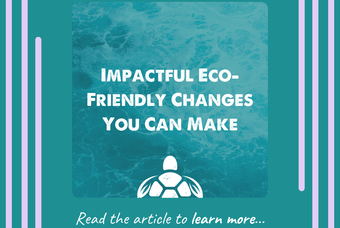
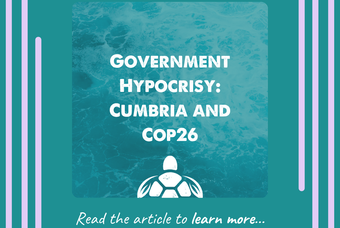
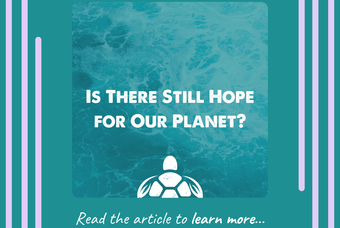
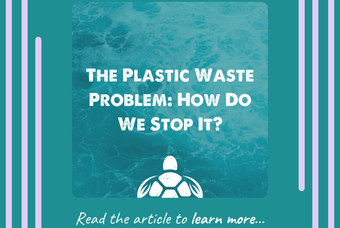
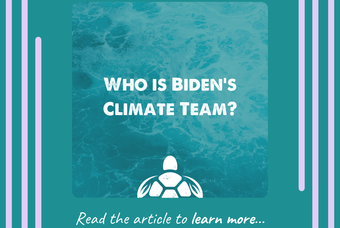
0 comments. Write a comment